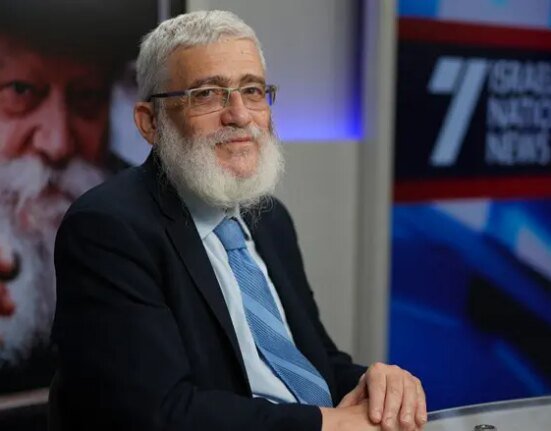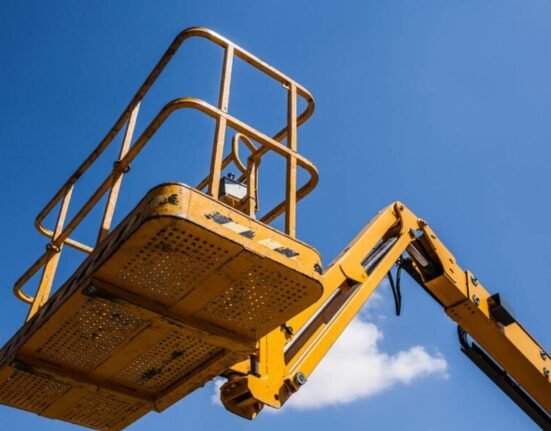Stay informed with free updates
Simply sign up to the Aerospace & Defence myFT Digest — delivered directly to your inbox.
Britain and Germany will vow on Thursday to work more closely to sell jointly made weapons, including Typhoon jets, in a deal that Downing Street claims can unlock “billions of pounds of additional defence exports”.
Exports of jointly made defence kit have been a source of tension between the two countries for years, with Germany exercising its veto right to block sales to countries such as Turkey and Saudi Arabia.
Sir Keir Starmer, UK prime minister, and German chancellor Friedrich Merz will sign a treaty in London that includes a commitment to pursue export campaigns together for jointly produced military equipment.
“The leaders will unveil a new agreement to boost world-class UK defence exports . . . with the two countries set to pursue joint export campaigns for jointly produced equipment,” said the UK government.
British officials said Germany would be more open in future to selling equipment such as Eurofighter Typhoons, Airbus A400M military transport aircraft and Boxer armoured vehicles to certain regimes.
The previous German government, a three-way coalition that included the Greens, blocked the sale of Typhoons to Ankara after Turkey announced its interest in buying them in 2022, citing political and rights concerns.
On Wednesday, a court in Turkey sentenced the biggest political rival to President Recep Tayyip Erdoğan, Istanbul mayor Ekrem İmamoğlu, to a year and eight months in jail.
A German official said the text underlined “the importance of having a reliable agenda with regard to transfers and exports” of defence-related products.
Starmer said the wide-ranging treaty, by which Germany would also change its laws to facilitate the fight against people smugglers moving migrants towards the Channel coast in France, would “bring the UK and Germany closer than ever”.

In 2024, Germany lifted its years-long opposition to selling the aircraft to Saudi Arabia. The new German government, led by the conservative Christian Democrats with the Social Democrats as a junior partner, has promised a more pragmatic approach to arms exports as it greatly increases defence spending.
Their coalition agreement includes a pledge to align weapons sales “more closely with our interests in foreign, economic, and security policy” and pledged to expand support for foreign sales of weapons.
The UK will also join a multilateral agreement on arms exports between Germany, France and Spain, according to British and German officials.
A new export order for Eurofighter Typhoons would boost British jobs and also allay union concerns over a loss of aerospace skills.
British production of the combat aircraft, which has been assembled for decades at BAE Systems’ factory in Warton, Lancashire, recently stopped.
The factory is preparing to deliver the last Typhoon jet for Qatar under a £5bn order placed in 2017 but work on the final assembly line has ground to a halt.
BAE Systems has said it is confident of securing new export orders because conflicts in Europe and the Middle East have increased demand.
Unions stepped up warnings earlier this month that, if no new orders were secured soon, industrial skills could be lost, particularly those needed to build the next generation of fighter aircraft via the UK’s role in the Global Combat Air Programme (GCAP), which includes Italy and Japan.
The Typhoon is built by a pan-European consortium that includes BAE Systems, Airbus and Leonardo, with each company building different parts for every aircraft.
The companies also operate a final assembly line in each partner nation — when a partner nation orders jets, or leads on an export deal, it assembles the aircraft. The UK is the lead nation on export deals to Saudi, Qatar and Turkey.

The deal could also help to deliver more export orders for the slow-selling A400M military transport aircraft built by Airbus. The wings for the aircraft are built at Airbus’s UK factory at Filton, near Bristol.
The Boxer armoured vehicle is built by a BAE Systems-Rheinmetall joint venture with collaboration from KNDS UK at Telford, Shropshire.
Britain and Germany will also deepen co-operation between their public financial bodies — Germany’s KfW state development bank and UK bodies such as the National Wealth Fund and British Business Bank — to mobilise investment in growing businesses.
The deal will be approved by UK chancellor Rachel Reeves and German finance minister Lars Klingbeil at a G20 meeting in South Africa.







